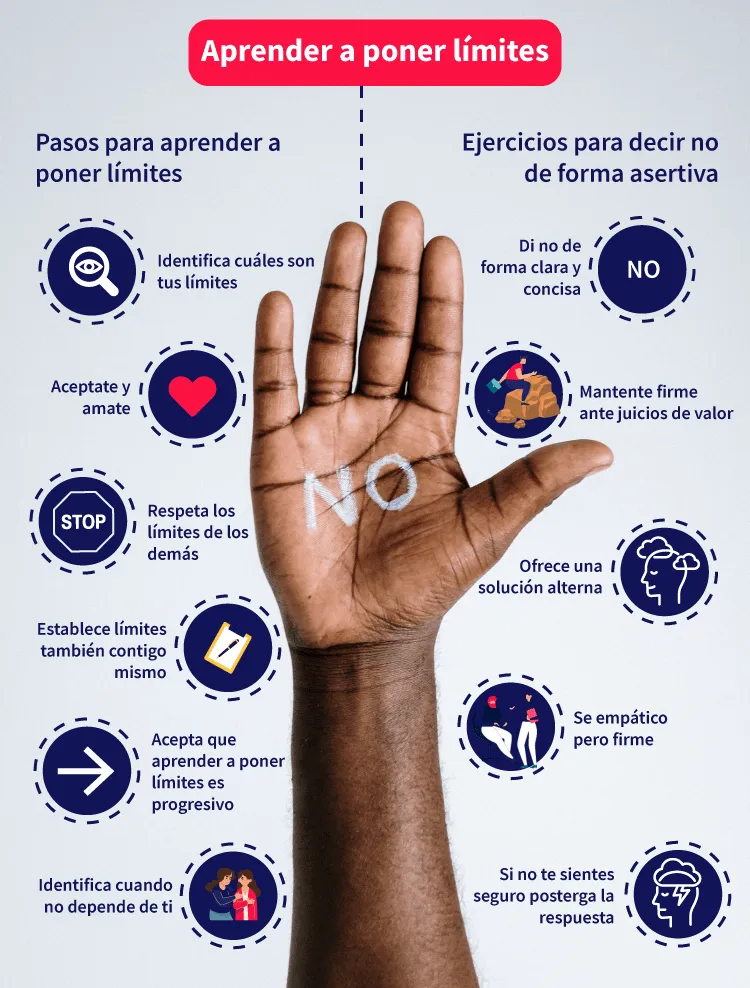With the COVID-19 pandemic, a seed that was already growing burst forth abruptly and powerfully: teleworking. Some said it was here to stay, but the truth is that it was already widely practised in some companies. Teleworking brings many benefits if applied ethically, but it also has some drawbacks.
But beyond teleworking, there is social networking, messaging and video-calling services…. And all of these contribute to the feeling of being overloaded.
Jane Wilde Hawking said that when people struggle against fate, the only thing that matters is safeguarding survival
Although we live in a hyper-connected world capable of offering many advantages, we have a duty to safeguard one valuable dimension: our well-being.
We are aware, definitely, that we must set limits to certain situations as a guarantee of peace and mental balance, and the best way to do so is through assertiveness. But it is curious that, presently in which we live, we have the need to do so all too often.
 Let’s look at some figures: companies like Telefónica report that the peak of connections starts at 9am, a time when we exchange countless emails. On average, teleworking days are extended by up to 10 hours instead of eight, and what is more striking: many people set part of their working hours between midnight and 3am. The reason is simple to understand: they are unable to concentrate during the day and have no choice but to work at a time when, for example, the children are asleep.
Let’s look at some figures: companies like Telefónica report that the peak of connections starts at 9am, a time when we exchange countless emails. On average, teleworking days are extended by up to 10 hours instead of eight, and what is more striking: many people set part of their working hours between midnight and 3am. The reason is simple to understand: they are unable to concentrate during the day and have no choice but to work at a time when, for example, the children are asleep.
Setting limits means knowing how to organise yourself
And when we talk about getting organised, we are talking about managing time properly, since one of the advantages of teleworking is that it would allow us not only to be more productive, but also to avoid stress.
Being at home does not mean being available : sometimes we do not feel like chatting, either by chat or by video call…. And that doesn’t mean that we reject the person or that we want him/her less… It’s simply that sometimes we need to read a book or do nothing, and lower the revolutions of the mind.
We should not only think about setting limits for others, we should also set limits for ourselves, within the routine of emotional self-care . That is why we must not only set external barriers of containment against, for example, the information we receive, but also against excessive rumination (or thinking too much about our thoughts), etc. It does not do much good to be assertive with others if we are not assertive with ourselves!
Every day we face uncertainties and fears. We already know this, and that is why we have to put dikes – limits – to this mind that anticipates things that have not yet happened, to those ideas that visualise the worst and that intensify anxiety.
It is not just a matter of managing and controlling what comes to us from outside: attending to our inner universe is as important as the other. We must seek balance, know how to set limits, be clear about what we need at any given moment, and in interpersonal relationships.
📎 Alcaine, A. [Albert]. (2024, 22 September). Boundaries as a synonym for health. PsicoPop. https://www.psicopop.top/en/boundaries-as-a-synonym-for-health/
📖 References:
